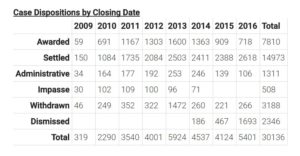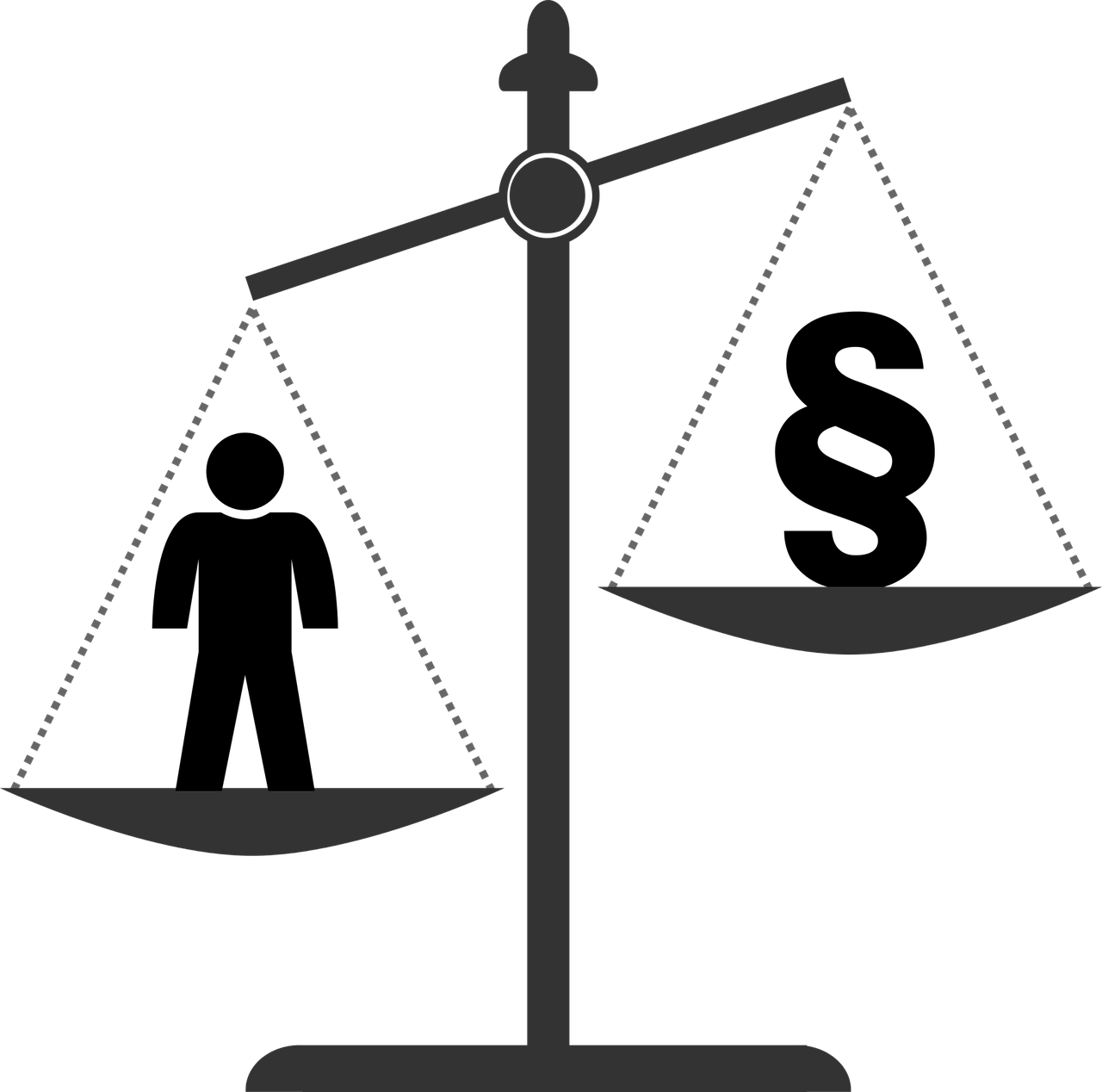NOTICE: This post references card features that have changed, expired, or are not currently available
The following is not legal advice. Please contact Alexander Bachuwa, a New York attorney, if you have a consumer arbitration question or claim.
Two weeks ago I wrote an article called Don’t Let Arbitration Delay Your Wedding which recounted Daniel Dempsey’s claim against Citibank where he was incorrectly charged overdraft fees in the amount of $150 and had his credit score negatively impacted as a result. In his quest for justice, Dempsey filed a case in small claims court but ended up fighting the claim in arbitration after Citi utilized an Arizona statute to have the small claim automatically forced into arbitration by way of Justice Court.
After incurring $100,000 in legal fees, Daniel won the initial arbitration only to have Citi appeal the decision.
The purpose of that article was to caution would-be claimants about the pitfalls of the arbitration process. Most notably, I wanted to advise consumers that they should hire an attorney only on a contingency fee basis to avoid incurring obscene legal costs. I also wanted to underscore that corporate giants will perform Top Gun maneuvers to make it burdensome on the claimant to recover.
To my delight, Daniel posted a comment on Frequent Miler about his journey through arbitration and subsequently let me interview him about the lessons he learned from prosecuting his claim and his thoughts about arbitration as a whole. Moreover, Daniel told me about a fascinating project called Level Playing Field, a database that provides a wealth of information on consumer arbitration claims.
To begin, here is more insight regarding Daniel’s claim and where it stands as of writing this post. Because of strict confidentiality agreements, it is rare to hear, let alone publish, the consumer’s side of the story. Since Daniel prevailed in his case against Citi, he is able to speak freely about his experience which could help consumers facing similar circumstances.
The Current Status of the Case Against Citi
After Daniel’s victory, Citi appealed the decision to a three arbitrator panel. Citi eventually dropped the appeal and Daniel and his attorneys filed a motion to recover the fees and costs up to this point. He is hopeful that there will soon be a resolution that ends the case.
After hearing the facts, I am baffled that Citi was so pigheaded to fight a claim that, in my legal opinion, was a slam dunk. Citi retained the powerhouse law firm of Quarles & Brady to squash Daniel’s claim. Perhaps it believed that expensive attorneys would intimidate Daniel into surrendering. More absurd was Citi’s irrational decision to appeal. Based on the award of punitive damages for Citi’s misconduct and the resources expended up to this point, Citi should have accepted defeat and moved on. I have no way of knowing this but I assume that at some point an executive at Citi learned about the amount spent on legal fees and decided to put an end to the madness.
What Would You Have Done Differently?
Daniel never intended to go to arbitration let alone small claims. For eighteen months, Daniel wrote to Citi customer service, imploring them to fix his credit. When that proved fruitless, he filed in small claims. He did not think that such a simple matter would be removed to arbitration.
Looking back, Daniel said he would have fought harder to avoid removal, something that the terms of the arbitration contract with Citi explicitly prohibited. If he lost the fight for removal, Daniel would have, from the outset, hired an attorney that was more familiar with the arbitration process and, given the amount in legal fees, one that did not charge by the hour. To Daniel’s defense, he reasonably thought he had an open and shut case and that it would be resolved quickly in his favor.
After learning more about his case, I have a better understanding of how his claim went from a $150 issue to a $100,000 expense.
Small Claims vs. Arbitration vs. Class Action
It was insightful to hear Daniel’s stance on small claims, arbitration, and class action. We had a spirited debate about the advantages and disadvantages of all three.
Class Action
My Position
Putting aside the disproportionate amount of money that attorneys make in class actions when compared to their clients, class actions serve the useful purpose of holding a corporation accountable vis-à-vis its bottom line.
Today, hoping for a class action in a consumer claim that is governed by an arbitration agreement is like a politician promising to bring back manufacturing jobs. Unless there is a radical change on the Supreme Court, arbitration clauses will continue to be enforced. It is more beneficial for consumers to educate themselves on this process instead of waiting for the class action factory to reopen.
Daniel’s Position
There is nothing easier for a consumer than to be represented in a class action. If someone sued Citibank in a class action in 2009 and Citibank stopped committing fraud before he was ever harmed, that would have been the absolute best outcome for Daniel. His reasoning is that he would not have been harmed in the first place.
Small Claims
My Position
I am not a proponent of small claims, especially in NY, because it can take months to have the hearing (see my small claims case against British Airways). Simultaneously, some states do not allow the consumer to be represented by attorneys in small claims. In those cases, the consumer is at a decided disadvantage because he has to learn the legal process while expending his time and effort litigating a claim for limited relief.
Daniel’s Position
On paper, small claims was the easiest, cheapest way for Daniel to resolve his claim which is why he filed in Arizona small claims court. Theoretically, his claim should have been resolved in a week. Instead, it was improperly removed to arbitration. Even now, it is unclear whether the removal to arbitration was a calculated action on the part of Citi’s lawyers or the prototypical reaction of any attorney i.e., a claimant files in X, the respondent would rather have it in Y because it is not X.
Consumer Arbitration
My Position
I have shouted from the rooftops (and on blogs) why consumers should not hesitate to file an arbitration claim. My paid advertisement goes as follows: “If eBay has taken away your eBay Bucks, if Citi has taken your ThankYou points, or if a company has taken $1 that rightfully belongs to you, you may have a claim which may result in a substantial settlement or arbitral award.”
Daniel’s Position
Daniel is by no means pro arbitration. He is an advocate of a quick and easy resolution. This, he says, can happen in arbitration but it can also be prevented if the respondent does not act in good faith. In his case, it took years of dealing with Citi’s procedural maneuvering before he finally prevailed. To that end, Daniel is anti-consumer arbitration because, left unchecked, businesses will have the opportunity to commit fraud in perpetuity. He believes that a lawyer that serves as an arbitrator part-time to supplement his income will not be so bold to issue meaningful awards or injunctive relief which would otherwise serve as a deterrent. This, he argues, creates an unregulated environment whereby institutions can steal tens of millions of dollars a year from hundreds of thousands of its customers with near impunity.
Our Consensus: Arbitration as a Shield And A Sword
The Shield
Although we did not agree on everything, I think Daniel would support the message of my first Frequent Miler post, Consumer Arbitration, an Unfamiliar Tool for Battling Corporate Mischief. With a thorough understanding of the consumer arbitration process and an experienced attorney, consumers can protect themselves from corporations behaving badly.
The Sword
Consumer arbitration can be more than a shield. If utilized properly, it can serve as a powerful weapon to confront corporations. In a consumer arbitration proceeding conducted by the American Arbitration Association, a consumer (or his attorney) has to pay only $200 to initiate the claim. The remaining sum which can total thousands of dollars must be covered by the corporation. The legal fees for a claimant who retains an attorney on a contingency fee basis are $0. Conversely, the corporation will likely hire a big law firm that charges tens of thousands of dollars.
In terms of awards, some arbitration agreements like those used by AT&T and Verizon contain ‘bounty provisions’ whereby a prevailing claimant can get thousands of dollars and in some cases double attorney fees just for winning.
In terms of risk, consumers must take into account the risk of a counter-claim but this tactic, in my experience thus far, has been a threat used to induce settlement. The same goes for the nonsensical ‘patently frivolous’ allegation waged by the respondent. If a consumer files a claim, the company has to prove, that the claim is, ‘clearly without doubt, devoid of purpose or value’. This intimidation tactic will not work if a consumer has a meritorious claim and is willing to call a corporation’s bluff.
One settlement, one award, may not strike fear into the heart of a billion dollar corporation but an incessant attack by thousands of claimants which generates millions in arbitration costs, legal fees, and settlements or awards, will certainly wreak havoc on a company’s bottom line. On that point, Daniel and I stand in solidarity.
From Victim to Consumer Protection Pioneer
With legal costs mounting, Daniel took matters into his own hands and educated himself on the arbitration process. He conducted his own due diligence by reading law review articles and analyzing arbitration agreements. He spent countless hours drafting documents and doing legal research. Along the way, he discovered a treasure trove of data tucked away in CSV files. Those files contained information on thousands of arbitration cases, the claimants, the respondents, the amount in the demand letter, the arbitrator assigned, and, most importantly, the outcome. Daniel organized this data, built a website, and started a nonprofit called Level Playing Field to showcase it. The goal of the organization is to make the arbitration process more transparent. Daniel says if Level Playing field had existed when he started his case, he would have been able to find lawyers with experience handling claims like his.
Level Playing Field Features
Prior to Level Playing Field, such information was available via the paid research tools of Westaw or Lexis Nexis. Now, prospective claimants are able to research lawyers who practice in the area of consumer arbitration free of charge. For example, World Law Group was shut down by the Consumer Financial Protection Bureau for conning claimants by charging legal fees up front and doing nominal legal work, if any. In contrast, I am able to link my law firm, bachuwalaw.com, to the database and show positive results for claims that have been published.
Level Playing Field also allows lawyers like me to research the arbitrators in my cases. By displaying the names of other attorneys who appeared before the arbitrator, I have a point of contact for learning more about the arbitrator. Much like judges have reputations in the courtroom, arbitrators also have personalities. This useful knowledge would be hard to ascertain without this database.
Level Playing Field Applied
I have had a few days to comb through the data of this fantastic database. I can hardly contain my excitement as I contemplate how I can apply this information to the benefit of my clients and to the detriment of culpable respondents. One statistic that immediately stood out was the miniscule amounts of arbitration claims filed. In 2009, there were 319 claims. In 2013, there was a high of 5924 claims. And in 2016, there were only 5401 claims. Millions upon millions of consumers are subject to arbitration clauses ranging from wireless carriers, television providers, manufacturers, retailers, auction sites, to financial institutions. It is not implausible to estimate that a significant portion of those consumers have been wronged by a corporation and are entitled to relief as a result.

With such limited data, how can it be argued that consumer arbitration does not bring about meaningful change? Such a conclusion can only be drawn after consumers embrace the process. Absent consumer involvement, there is nothing more than unsubstantiated speculation about the efficacy of consumer arbitration and its impact on corporate business practices.
“The Battle for Consumer Rights Should Happen on All Fronts.”
As an attorney who exclusively works in the field of alternative dispute resolution, I am arbitration’s biggest advocate. Having said that, I agree with the following words from Daniel, a former victim turned consumer advocate:
“I support significant reform. I think the battle for consumer rights should happen on all fronts. The pendulum has swung too far in the opposite direction. In my case, Citibank had the resources to not only figure out how to conduct the business of banking without committing fraud, but also, in good faith, escalate and resolve these issues long before they reached this point.”





[…] The Fine Print: The Consumer Strikes Back […]
I for one am a big fan of these articles. Fight the good fight!
[…] The Fine Print: The Consumer Strikes Back by Frequent Miler. Another great post in this great series. […]
I’m a fan of these posts because I always learn something from them. I don’t hesitate to go after companies that are clearly in the wrong. I live in Virginia. I filed two claims against Ally over their mishandling of two auto leases They settled on the first and I took them to small claims on the second. I declined to settle the second case because I knew I would win and did not want to execute a confidentiality agreement. Ally is not evil, just incompetent.
In Virginia, the small claims process makes it very expensive for companies to defend themselves so if you have a legitimate claim, I can’t imagine why you would not get a settlement offer. I also had a claim with ATT wireless. I just wrote them a letter and said I was going to file an arbitration case (required by their agreement, which is wrong) they settled immediately for more than I originally asked for. The moral of this story: don’t take abuse from big companies. If you have a legitimate beef, take action
Ally is so incompetent. I completely agree. And your parenthetical about AT&T drives me crazy. They want me to wait 30 days to have them fix something they haven’t done in 180 days. I wrote about this here: https://frequentmiler.com/2017/01/13/delaying-justice/
The worst is their legal department who tries to quote the language back to me. Still working on finding a great strategy for that.
[…] The Fine Print: The Consumer Strikes Back. – Just because a company is large and has an army of lawyers, don’t let them intimidate you into giving up your rights. Stand up for yourself. You’ll be surprised how often the “little guy” can win. […]
Nice job Alex. Great post.
Thank you, much appreciated.
I must concur with some of the other readers. Your writing is unintelligible.
@justsaying – good riddance.
This has been one of the most fantastic additions to Frequentmiler. While FM has his own unique component not found elsewhere, there are a ton of points/miles blogs. This extra element add so much more depth and is greatly appreciated.
I read each one savor the righteous indignation of holding the corporate overlords feet to the fire when the screw the customer.
Thank you Carl! Good grief!
So Alex, I am a bit confused about what’s in it for the contingency lawyer? Obviously, not every case will have such large punitive damages and what not, are there statutory provisions for attorney fees or something?
Valid point. Rarely are there punitive damages awarded and it’s tough to prove attorney fees unless there is a statute that provides for them. Most arbitration agreements try to restrict recovery to actual damages.
I use a sliding scale contingency fee agreement whereby I get less as the recovery increases. It’s not tens of thousands of dollars but the volume of the cases keeps the lights on. Most lawyers won’t touch these cases which leaves consumers on their own to fight them. I actually enjoy the process regardless of the claim amount.
I’ve been reading Frequent Miler since before the March Madness and NEVER has there been a writer here so out of the flow of what Frequent Miler does or the tone of how he does it…….
Every time I see you post I will delete it and I no time to waste on you………….Frequent Miler deserves better and I will read him until my ashes are spread out on the Bay…………..
Guess this means goodbye.
Just because a company is large and has an army of lawyers, don’t let them intimidate you into giving up your rights. Stand up for yourself. You’ll be surprised how often the “little guy” can win.
Exactly! This is especially true when you retain the services of Bachuwa the Bulldog, Attorney at Law. [INSERT CATCHPHRASE]
Thanks, FM. I am very interested in this subject. I have been to small claims court 4 times and won each case (even against an attorney once), but I diligently document everything and I am tenacious.
If I go to a store which sells something for $9.99 and I hand over a $10 note I expect my 1 cent in change, in fact I demand it when the store just ignores it. It is not the 1 cent that bothers me, but the obvious use of an advertising inducement ($9.99 “seems” much less than $10.00) where the store is not living up to its offer.
One thing I must say on behalf of Citi: Some years ago I purchased a fireplace insert from a store in my town that had a great reputation and had been in business 25 years. I had to pay upfront as I wanted it painted a particular color and I charged it to my Citi card. I didn’t receive the item for 2 months despite repeated calls to the store. I even called the manufacturer in Canada who told me the item was never even ordered by the store as they were on a credit hold! I went to the store to demand my money back but that morning the closed the doors and I learned they had cheated many others. I contacted our State Attorney General who declined to pursue the case. I called Citi to ask what they could do for me even though it was now beyond their normal time frame for a claim. I went to small claims court and filed a claim against the store owner but had trouble getting it served in a fancy neighborhood in the SF Bay Area.
Finally after 5 months Citi sent me a check for the full amount, about $3000! So I do have a soft spot for Citibank.
“If I go to a store which sells something for $9.99 and I hand over a $10 note I expect my 1 cent in change.”
Damn right!
Agree with most of the other writers……..this was horribly written snd confusing as hell. Textbook case of how to turn off blog readers………….if no one gives you the truth you’ll never learn……..
JustSaying, guess I’ll never learn. This is how I write. I can’t believe my writing style is the focus. Ah well.
NO ONE HAS ANY IDEA WHAT THE CASE WAS? You love to write that way? To aggravate readers?
Apparently, at least one person, AJK did. Yeah, that’s my purpose as a consumer advocate, to aggravate readers.
Based on the feedback, I will put a quick summary in the intro. I erroneously assumed that everyone had read the post from two weeks ago. I will fix that now but there’s a better way to say that than your extreme comments.
“Textbook?” Do they teach blogging in universities now? The snark from you or from me serves no purpose.
Two weeks ago I wrote an article called Don’t Let Arbitration Delay Your Wedding which recounted Daniel Dempsey’s claim against Citibank where he was incorrectly charged overdraft fees in the amount of $150 and had his credit score negatively impacted as a result. In his quest for justice, Dempsey filed a case in small claims court but ended up fighting the claim in arbitration when Citi was granted removal. After incurring $100,000 in legal fees, Daniel won the initial arbitration only to have Citi appeal the decision.
Better?
Alex, I must say, as another self-described lawyer who has dabbled in both small claims and arbitration (almost exclusively on my own behalf–yes, cue jokes about a lawyer being his own client), I enjoy this series. Keep up the good work.
Thank you for the feedback. I also have had a fool for a client.
I’m sorry, but without more facts of what Daniel was disputing, and what was Citi’s response, this article has no meaning and nothing useful to consider. Every case is different, so it is important to know the facts of the case in order to make a wise decision. There is no way to tell in this article why Citi would spend so much money on attorney’s fees to fight a case that, in your opinion, is “open and shut”. I can only gather from what you have written that Daniel’s case was not as open and shut as you think it is. Big corporations don’t just blindly go spending a large amount of money of legal fees without reason.
As a lawyer myself, I would still advise clients to go theough small claims court first, assuming they have a good case.
David, as a self-described lawyer, one would justifiably assume that you’d have been taught to read the entire article, or in this case, the very first sentence, which links to the author’s prior article detailing his client’s claim. Alas, it appears that assumption would be misguided.
I came here to post this. I have no clue what Daniel’s original case was about. Don’t make me click links to read other blogs to understand this post. Just give us a nice quick summary at the top or something.
Sorry?
Fixed it ‘Spanky’.
Nothing useful to consider? How does this advance the discussion?
Fixed it but disagree with your assessment ‘go through small claims first’. Happy to have a substantive debate on that issue, not the peripheral minutia of blogging best practices.
And this statement is ridiculous: “Big corporations don’t just blindly go spending a large amount of money of legal fees without reason.” Really? Because they did that here and got reprimanded for doing so by the arbitrator.